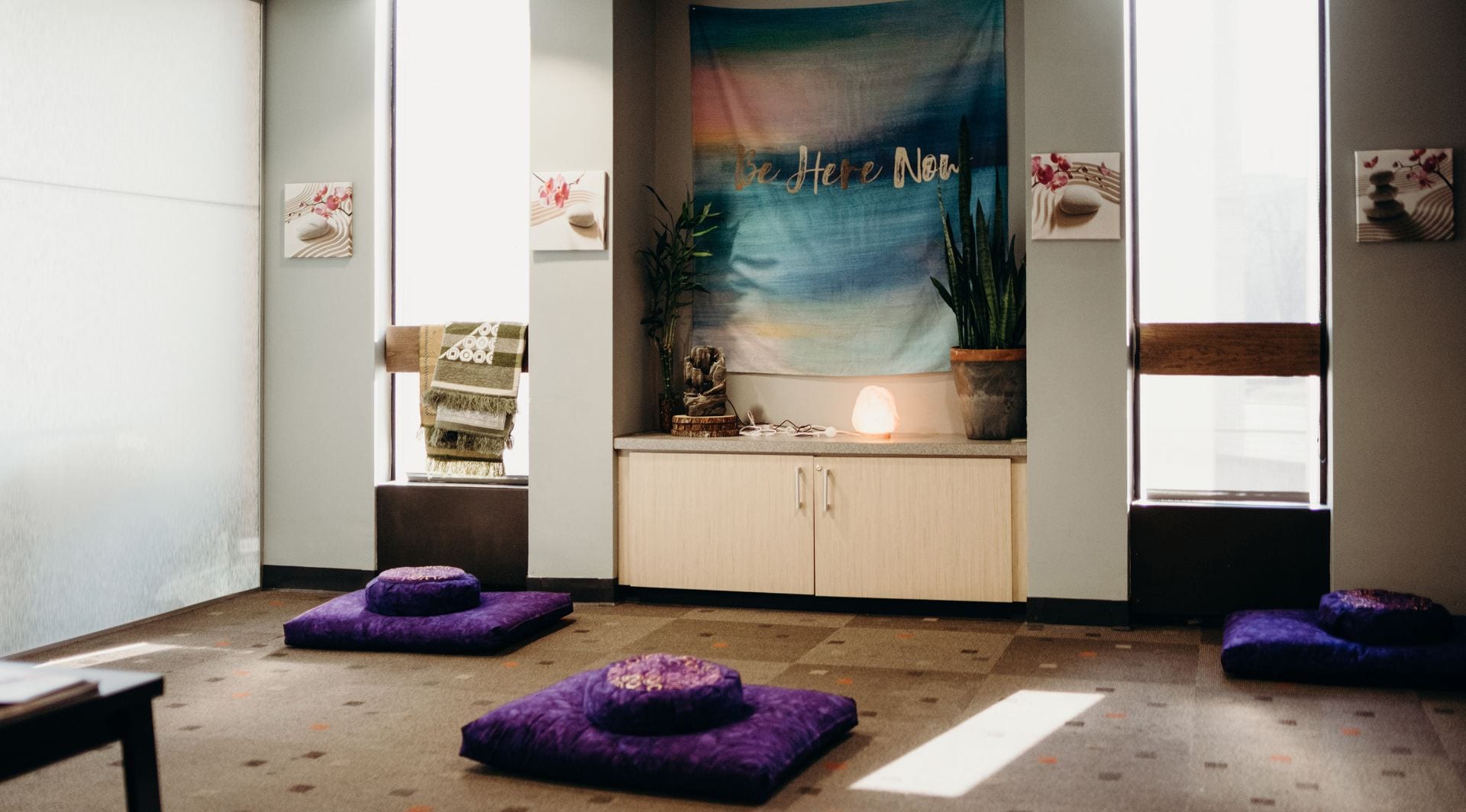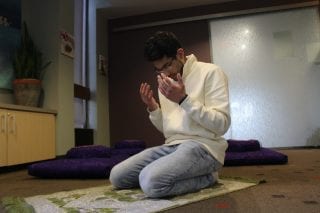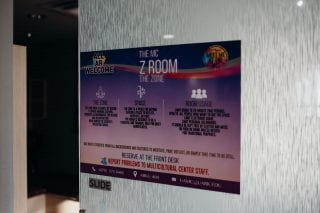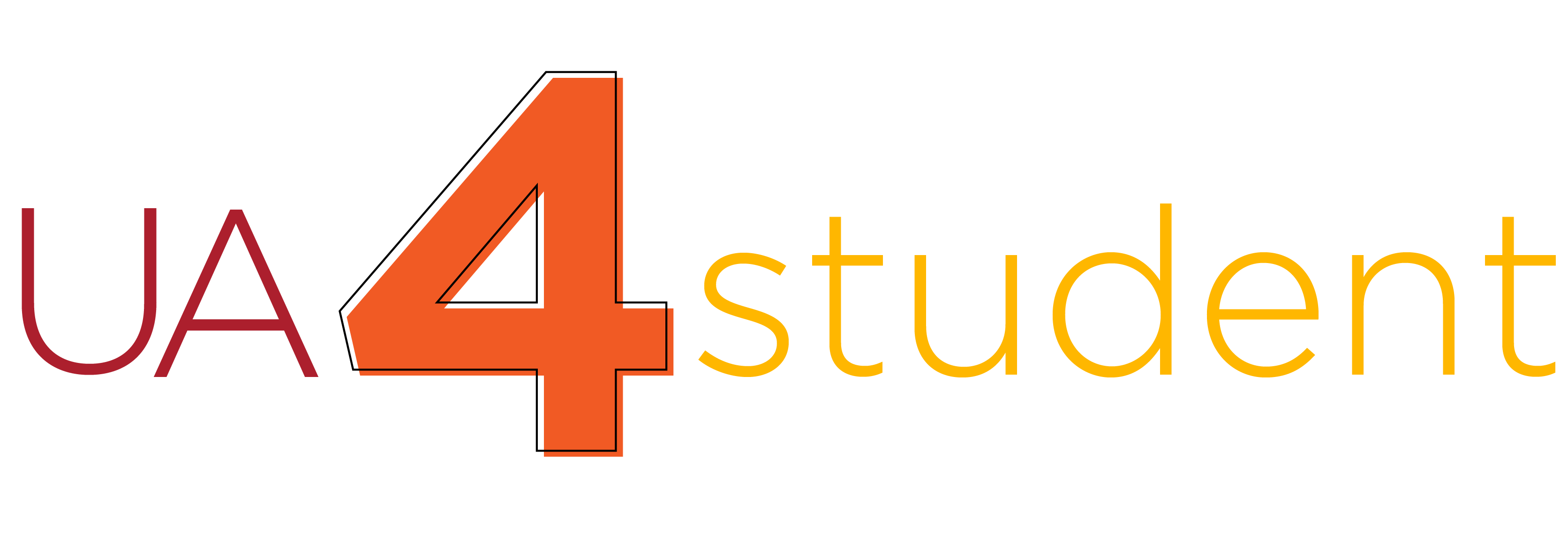
“I used to pray outside of classrooms in hallways,” said S. Abubakar Bin Qasim, a sophomore studying biophysics at the University of Arkansas. Before The Zone space opened in the Center For Multicultural and Diversity Education Qasim would find any open, quiet place that he could to pray while he was on campus. He prayed in hallways, empty classrooms, and any corner that was available.
Many Muslim students face this dilemma on campus. Serine Raache, a sophomore biochemistry major, would have to “find any corner to pray in.” Before ARKU 404 was converted into The Zone, it was simply a room with a table and chairs. Students were able to use it freely. “The room was still here, before it was officially The Zone. It was less quiet so there were students studying,” Raache explained.
The University of Arkansas is home to one of 98 Muslim Student Association (MSA) councils nationwide. Raache and Qasim are both members of the MSA. “Most of our members use the room multiple times a week and find it very convenient and peaceful,” Faizullah Asif, the president of the MSA said. While Muslim students face this dilemma at the U of A, it is also a dilemma nationwide. Asif explained the rise in these rooms across college campuses. He said that some of his friends who attend University of Texas at Dallas and Oklahoma State University have multiple prayer rooms, each for a different religion. According to MSA National, over 120 campuses provide prayer rooms.
Since Muslims have 5 daily prayers, it is important that a space for Muslim students on-campus to pray exists. Qasim uses this space 3-4 times per day. For Muslim students who live on-campus, it may be more convenient to pray in their residence hall rooms. Unfortunately, students who live off-campus may not have the luxury of driving home and back if they only have a short break between classes. The Zone has filled that void for many Muslim students.
Qasim leaves his janamaz, or prayer rug, in The Zone to keep him from carrying it around in his backpack. It is safe to leave these resources in The Zone and they will help other students who may need them.
Brande Flack, director of retention programs at the Multicultural Center, explained that the main reason for The Zone was the need of a safe space for Muslim students to pray.
“We recognized that there needed to be a space for prayer for the Muslim student organizations,” she said.
“Being a Muslim student on campus and having this space gave me a place to pray after class,” Qasim said. “Being able to use this space gave me peace of mind.”
When a budget of $2,500 was approved to renovate the space, it became The Zone last fall. This small space was transformed into a room where students are safe to pray, reflect, meditate, or simply take time out of their day to center themselves.
 In addition to this space being used by Muslim students, it is also used by people of other faiths and practices. Flack recommends that everyone take time out of their day to meditate and reflect. Flack says that The Zone is for “anyone who has a spiritual life and finds themselves out of alignment and needs a moment to relax.” She even uses the room herself. Taking time out of your day to reflect is important to maintaining a healthy control over stress. For students who are busy and believe that they have no time for meditation or reflecting, Flack says that anyone can find “30 minutes for something that can change your whole day and make it better. It’s so worth it.”
In addition to this space being used by Muslim students, it is also used by people of other faiths and practices. Flack recommends that everyone take time out of their day to meditate and reflect. Flack says that The Zone is for “anyone who has a spiritual life and finds themselves out of alignment and needs a moment to relax.” She even uses the room herself. Taking time out of your day to reflect is important to maintaining a healthy control over stress. For students who are busy and believe that they have no time for meditation or reflecting, Flack says that anyone can find “30 minutes for something that can change your whole day and make it better. It’s so worth it.”
Prayer, meditation and reflection times are not the only uses of the rom. Staff and faculty use the space to hold various classes. Flack teaches a breathwork class in the space. Pablo Scoponi, a teaching assistant in World Languages, Literatures, & Cultures, uses the space to teach a Spanish breathwork class to students. Scoponi said he also uses this room when he is not teaching.
“I discovered [The Zone]. When I come [to the Multicultural Center], I sometimes study and then I come here to meditate when I need a break,” Scoponi said. He also believes that it is important to take time out of your day to decrease stress. “This space, there will always be something that may or might distract you. It depends on you and what you do about it. When you learn to switch off the outer voice, you can listen to the inner voice. To get disconnected from the outside world [and] to get connected to the inside world.”
The Zone is a very important space for students and staff, regardless of race, culture, or religious affililation.
“It is an inclusive space and resource for anyone who needs it,” Flack said. “It really helps improve life on this campus.”

